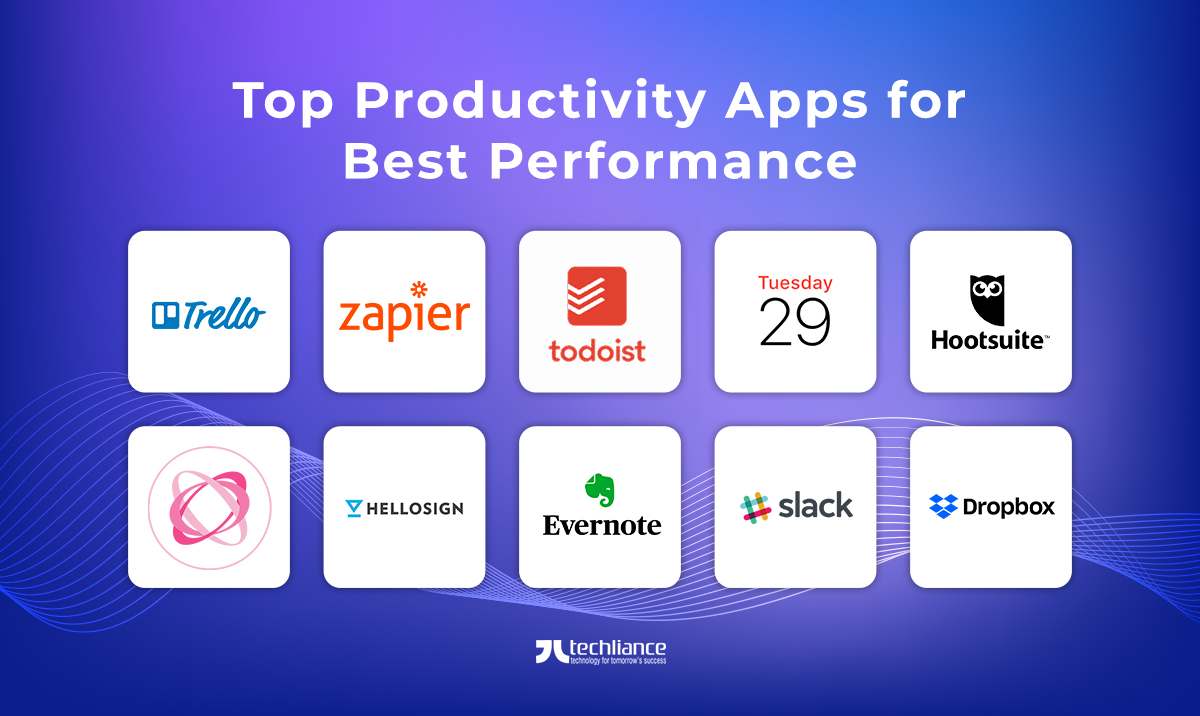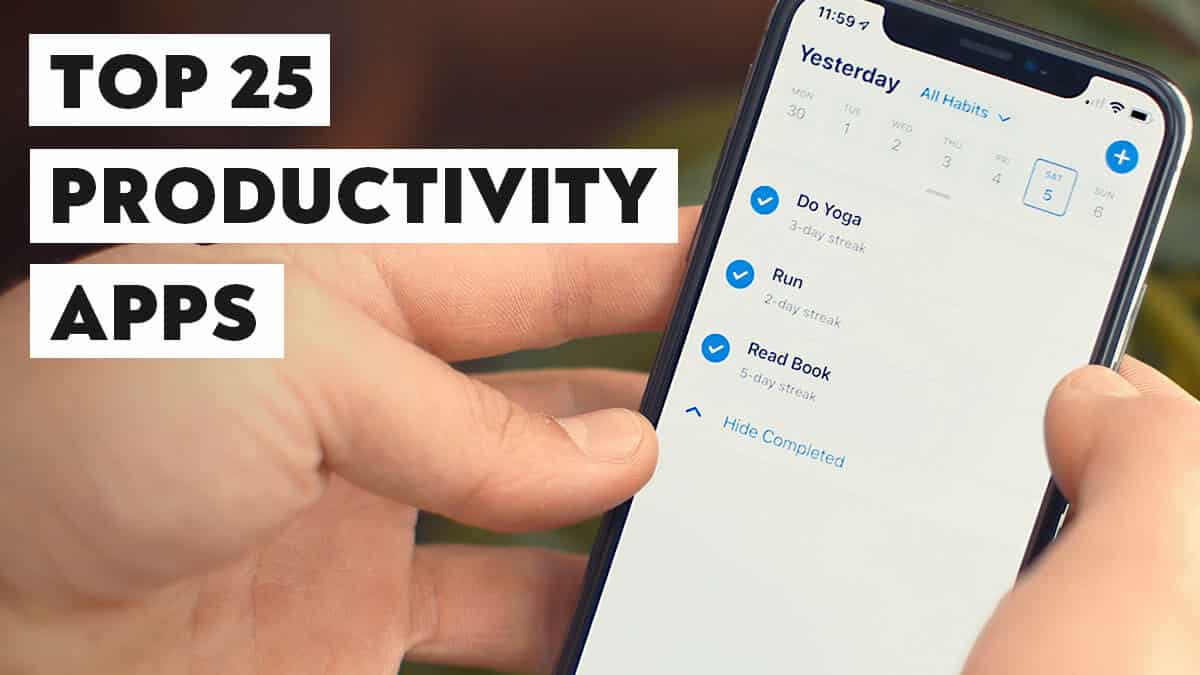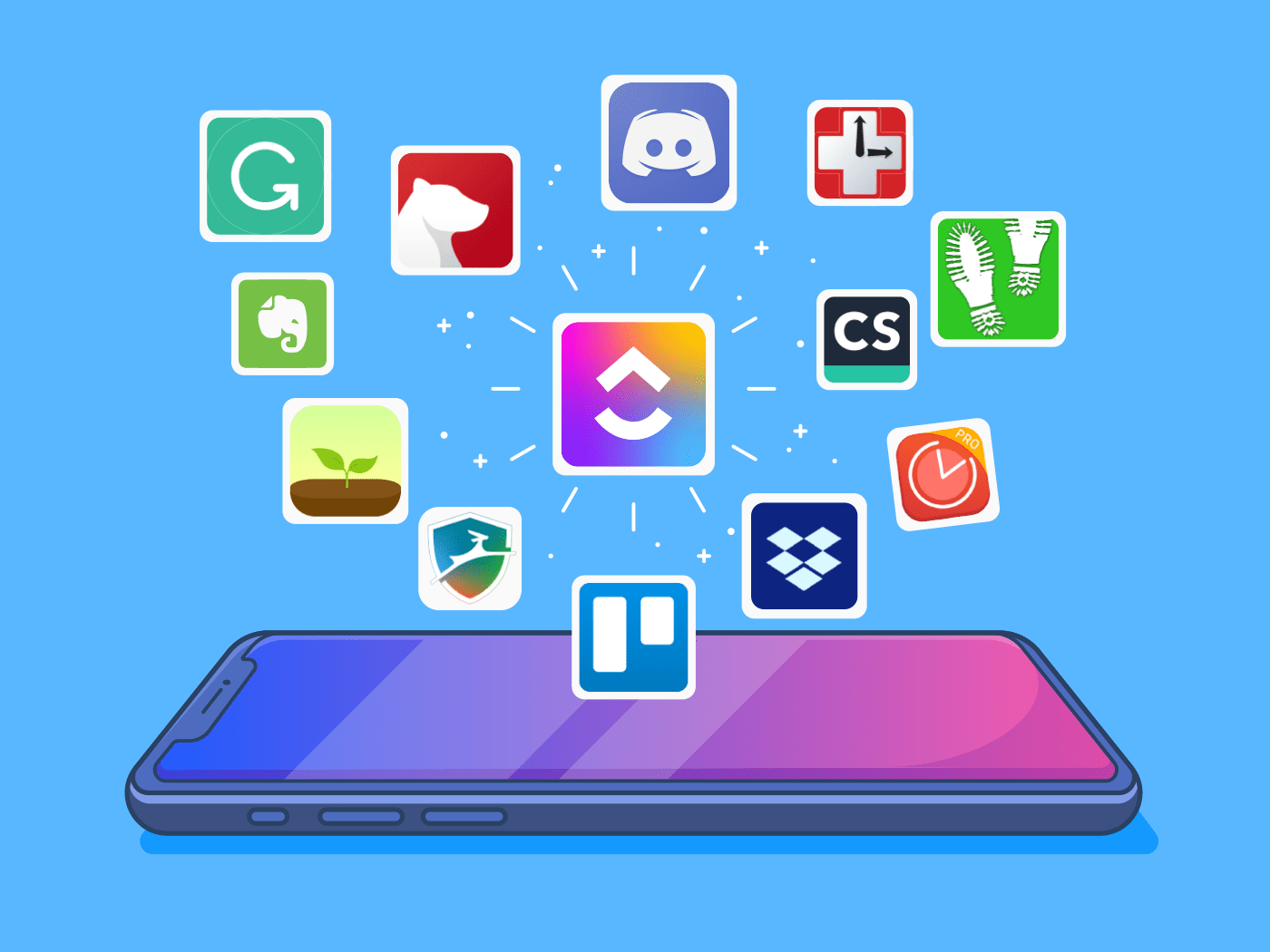Productivity apps for professionals – In today’s fast-paced business environment, professionals need every edge they can get to stay productive and organized. Productivity apps have emerged as indispensable tools for streamlining workflows, enhancing collaboration, and maximizing efficiency. This comprehensive guide explores the benefits, types, and best practices of productivity apps, empowering professionals to unlock their full potential.
From task management and note-taking to communication and project planning, productivity apps offer a wide range of solutions tailored to specific needs. By understanding the key features and functionalities of these apps, professionals can make informed choices and leverage technology to achieve their goals.
Productivity Apps for Professionals
Productivity apps are software tools designed to help professionals manage their time, tasks, and resources more efficiently. They offer a wide range of features that can streamline workflows, automate tasks, and improve collaboration.
The benefits of productivity apps for professionals are numerous. They can help professionals:
- Save time by automating tasks and streamlining workflows
- Improve efficiency by providing tools for task management, scheduling, and collaboration
- Increase productivity by helping professionals stay organized and focused
- Reduce stress by providing tools for managing tasks and deadlines
- Improve communication and collaboration by providing tools for sharing files, scheduling meetings, and sending messages
There are many different types of productivity apps available, each with its own unique set of features. Some of the most popular types of productivity apps include:
- Task management apps: These apps help professionals manage their tasks, set priorities, and track their progress.
- Calendar apps: These apps help professionals schedule appointments, meetings, and events.
- Note-taking apps: These apps help professionals take notes, organize their thoughts, and collaborate with others.
- Collaboration apps: These apps help professionals share files, schedule meetings, and send messages.
- Automation apps: These apps help professionals automate tasks, such as sending emails, scheduling appointments, and generating reports.
Some of the most popular productivity apps used by professionals include:
- Asana
- Trello
- Google Calendar
- Evernote
- Slack
- Zapier
Benefits of Using Productivity Apps
Productivity apps are software tools designed to help individuals and teams improve their productivity and efficiency. These apps offer a range of features that can help users manage their time, organize their tasks, and collaborate with others. By leveraging the capabilities of productivity apps, professionals can streamline their workflows, reduce distractions, and achieve their goals more effectively.
Improved Efficiency and Organization
Productivity apps can significantly enhance efficiency by providing users with a centralized platform to manage their tasks, projects, and schedules. By consolidating all relevant information in one place, these apps eliminate the need for manual tracking and reduce the risk of overlooking important details.
Additionally, productivity apps often offer features such as task lists, reminders, and project management tools, which help users prioritize their work, set deadlines, and stay organized.
Enhanced Time Management
Productivity apps play a crucial role in improving time management by providing users with insights into how they spend their time. Time-tracking features allow users to monitor the time spent on different tasks and projects, helping them identify areas where they can optimize their schedules.
Additionally, productivity apps offer tools such as calendar integration, scheduling assistants, and deadline reminders, which help users plan their days more effectively and avoid procrastination.
Increased Task Completion
Studies have shown that using productivity apps can lead to increased task completion rates. By providing users with a clear overview of their tasks, deadlines, and priorities, productivity apps help them stay focused and motivated. Additionally, features such as task delegation, collaboration tools, and progress tracking allow users to work more efficiently and complete tasks on time.
Choosing the Right Productivity Apps

Selecting the ideal productivity apps for your professional needs requires careful consideration of several key factors. These include the specific tasks you need to accomplish, your budget, the number of users, the compatibility with your devices and operating systems, and the level of security required.
To help you make an informed decision, we’ve compiled a table comparing different productivity apps based on their features, pricing, and user reviews. This table provides a comprehensive overview of the most popular options, enabling you to choose the best fit for your individual requirements.
Features
When evaluating productivity apps, it’s crucial to assess the features they offer. Consider the tasks you need to accomplish and ensure the app provides the necessary functionality. Key features to look for include task management, calendar integration, note-taking, file sharing, and collaboration tools.
Pricing, Productivity apps for professionals
The cost of productivity apps varies widely, so it’s essential to set a budget before you start shopping. Consider the number of users and the features you need to determine the appropriate price range. Many apps offer free or freemium plans, while others require a monthly or annual subscription.
User Reviews
Reading user reviews can provide valuable insights into the performance and reliability of productivity apps. Check app stores and online review sites to see what other users have to say about their experiences. Positive reviews can indicate a well-functioning app, while negative reviews may highlight potential issues.
Specific Needs
In addition to the general factors discussed above, you may also need to consider specific needs when choosing productivity apps. For example, if you work in a team environment, collaboration features may be essential. If you need to access your apps from multiple devices, cross-platform compatibility is important.
And if you handle sensitive data, security features should be a top priority.
Using Productivity Apps Effectively: Productivity Apps For Professionals

To maximize the benefits of productivity apps, it is crucial to adopt effective usage practices. These practices include integrating the apps into daily workflows, leveraging their features, and avoiding common pitfalls and distractions.
Integrating Productivity Apps into Daily Workflows
- Identify tasks that can be automated or streamlined using productivity apps.
- Create a central hub for all relevant apps to facilitate easy access and organization.
- Establish clear workflows that incorporate the use of productivity apps at specific stages.
Leveraging Productivity App Features
- Explore the full range of features offered by each app and customize them to suit individual needs.
- Utilize features such as task management, time tracking, collaboration tools, and project planning.
- Experiment with different features to find the most effective combinations for specific tasks.
Avoiding Common Pitfalls and Distractions
- Minimize distractions by disabling notifications or using focus modes.
- Avoid multitasking and focus on completing one task at a time.
- Regularly review and adjust usage patterns to identify areas for improvement.
Future Trends in Productivity Apps
The future of productivity apps is bright, with emerging trends and innovations set to revolutionize the way we work. Artificial intelligence (AI) and automation are at the forefront of these advancements, promising to enhance productivity and efficiency even further.
The Impact of Artificial Intelligence and Automation
AI-powered productivity apps can automate repetitive tasks, freeing up professionals to focus on more strategic and creative work. Natural language processing (NLP) allows apps to understand and respond to human language, making it easier to manage tasks, schedule appointments, and access information.
Automation tools can streamline workflows, reducing the time spent on manual processes. For example, AI-powered email assistants can filter and prioritize emails, freeing up time for more important tasks.
The Future of Productivity Apps in the Workplace
As productivity apps continue to evolve, they will become increasingly integrated into the workplace. Collaboration tools will enable seamless teamwork, allowing professionals to share ideas, track progress, and manage projects more effectively.
Data analytics will play a crucial role in optimizing productivity. Productivity apps will provide insights into how individuals and teams work, enabling organizations to identify areas for improvement and make data-driven decisions.
Wrap-Up

As technology continues to advance, productivity apps will undoubtedly play an even more prominent role in the workplace. By embracing the latest innovations and integrating these tools effectively, professionals can gain a competitive advantage, optimize their time, and achieve exceptional results.
FAQ Overview
What are the key benefits of using productivity apps?
Productivity apps can significantly improve efficiency, organization, time management, and task completion.
How do I choose the right productivity apps for my needs?
Consider factors such as features, pricing, user reviews, and compatibility with your workflow.
What are some best practices for using productivity apps effectively?
Integrate apps into your daily routine, set realistic goals, and avoid distractions to maximize benefits.
